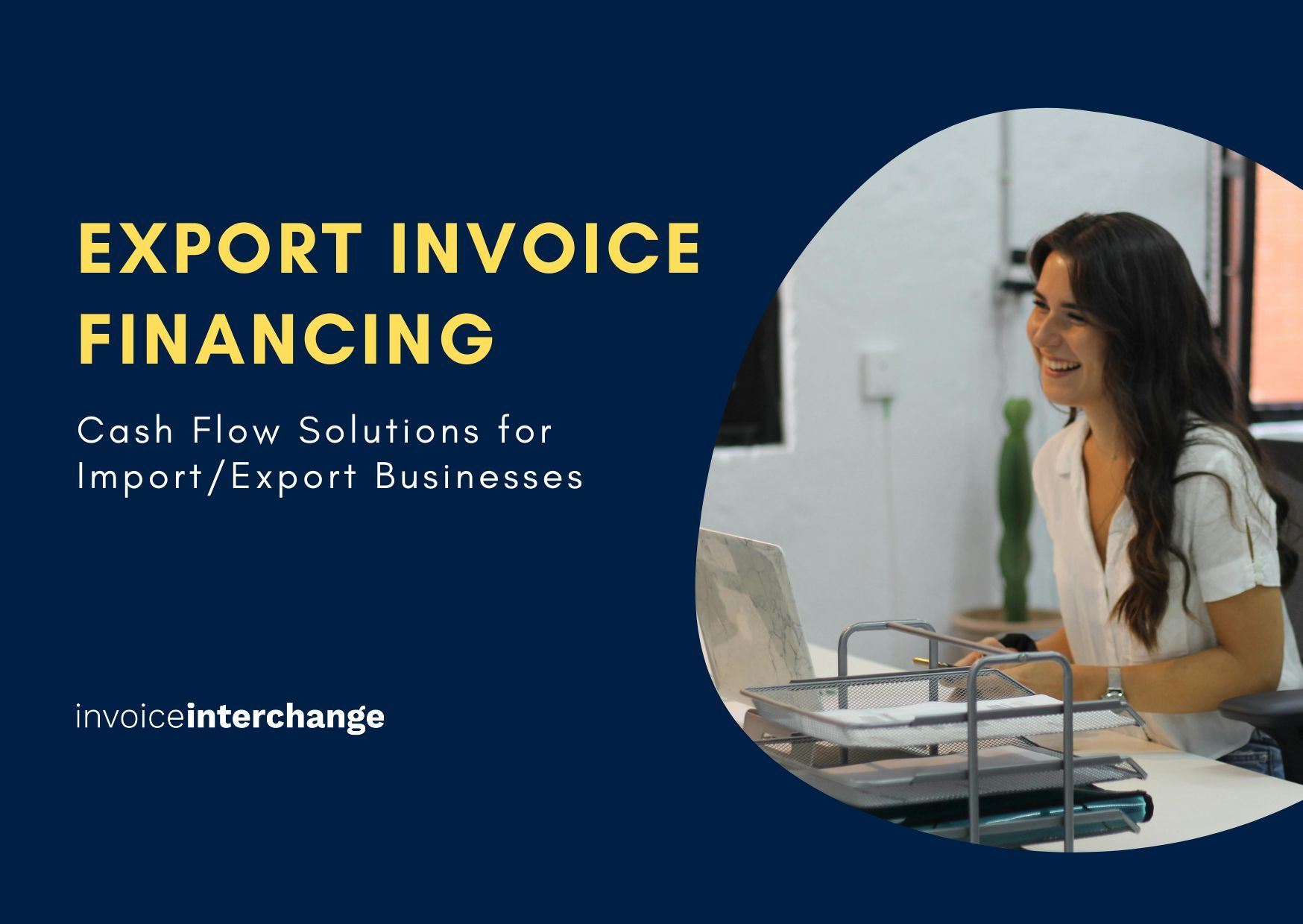
Unlocking Cash Flow: Invoice Financing for Small Businesses
Cash flow is the lifeblood of any business, and for small businesses, maintaining a healthy cash flow is often one of the most challenging aspects of financial management. As a small business owner, you are acutely aware of the hurdles that come with managing cash flow, from late payments to seasonal fluctuations in revenue. Traditional financing options like a business loan can help, but invoice financing offers a specific type of financing that bridges the gap between revenues and cash flow for businesses. It provides immediate access to funds tied up in unpaid invoices and helps businesses maintain financial stability. This article delves into the common cash flow challenges faced by small businesses and how invoice financing can help overcome them.
The Cash Flow Challenges for Small Businesses
Delayed Payments
One of the most significant challenges small businesses face is late payments from customers. Delayed payments, resulting from extended payment terms or customers taking a long time to pay their invoices, can create cash flow gaps, making it difficult to cover operational expenses, pay suppliers, and meet payroll.
Seasonal Revenue Fluctuations
Many small businesses experience seasonal variations in revenue, with peak periods followed by slower times. These fluctuations can strain cash flow, especially during off-peak seasons when expenses remain constant, but income drops.
Limited Access to Traditional Financing
Small businesses often find it challenging to secure traditional financing options like business loans or lines of credit due to strict lending criteria, lack of collateral, or insufficient credit history. In contrast, invoice financing loans provide immediate cash flow based on unpaid invoices, allowing businesses to borrow against the value of their outstanding invoices. This limited access to capital can hinder growth and operational stability.
High Administrative Burden
Managing accounts receivable and chasing late payments can be time-consuming and resource-intensive. For small businesses with limited staff, this administrative burden can divert attention from core business activities and strategic planning.
Unpredictable Cash Flow
Inconsistent cash flow can make financial planning difficult, leading to missed opportunities for investment and growth. Small businesses need a steady cash flow to make informed decisions and remain competitive.
How Invoice Financing Can Help
Invoice financing, also known as accounts receivable financing, addresses these cash flow challenges by allowing businesses to sell their unpaid invoices to a factoring company in exchange for immediate cash flow. This solution provides quick access to funds, helping businesses cover operational costs and seize growth opportunities. Typically, businesses can receive up to 90% of their invoice amount upfront, which significantly improves their cash flow and liquidity.
Immediate Access to Cash
Invoice financing provides quick access to funds tied up in unpaid invoices. By receiving a significant portion of the invoice value upfront—usually between 80% and 90%—businesses can maintain liquidity and cover their operational expenses without waiting for customers to pay.
Smooths Cash Flow
By converting outstanding invoices into immediate cash, invoice financing helps smooth out cash flow, especially during seasonal fluctuations. This stability allows small businesses to plan better and manage their finances more effectively throughout the year.
Reduced Need for Traditional Loans
Invoice financing offers an alternative to traditional loans provided by financial institutions, which often come with high-interest rates and stringent approval processes. Since the financing is based on the value of the invoices, it is more accessible to small businesses with limited credit history or collateral.
Lower Administrative Burden
Outsourcing accounts receivable management to the financing company reduces the administrative burden on small businesses. This frees up valuable time and resources, allowing staff to focus on strategic activities and growth initiatives.
Mitigates the Risk of Late Payments
With invoice financing, businesses receive cash upfront, reducing the impact of late payments on cash flow. This predictability allows for more accurate financial planning and better decision-making.
What are Typical Invoice Factoring Fees?
At InvoiceInterchange, we offer a simple fee structure invoice financing facility to businesses. There are only 2 fees, a transaction fee where we take a percentage against the funded invoices. We offer a pay-as-you-go fee structure, which means there is no fee when there is no drawdown. This way, businesses can obtain immediate working capital injection as and when they need to.
Example: Invoice Financing in Action for a Small Retail Business
Consider a small retail business, Retail Solutions Ltd., which supplies goods to various local stores. They often face cash flow challenges due to 30-day payment terms extended to their clients.
Invoice discounting allows businesses to retain control over their sales ledger and collections process by advancing a portion of the invoice values. To address this, Retail Solutions Ltd. decides to use invoice financing. They sell a $20,000 invoice to a financing company, which advances 85% of the invoice value ($17,000) immediately. When the customer pays the invoice in 30 days, the financing company deducts a 3% fee ($600) and releases the remaining balance ($2,400) to Retail Solutions Ltd. This process provides Retail Solutions Ltd. with the necessary funds to maintain operations and invest in growth opportunities without waiting for customer payments.
Choosing the Right Invoice Financing Partner
Selecting the right invoice financing provider is crucial for maximising the benefits of invoice financing and ensuring a smooth, efficient process. Trusted providers like InvoiceInterchange can offer a more seamless and streamlined approval process. Invoice factoring companies play a significant role by purchasing outstanding invoices at a discount and conducting credit checks to evaluate the creditworthiness of businesses seeking financing.
Here are some key factors to consider when choosing an invoice financing partner:
1. Reputation and Experience
Look for a financing partner with a strong reputation and extensive experience in the industry. Research their background, read customer reviews, and check their track record. A reputable partner with a history of satisfied clients is more likely to provide reliable and high-quality service.
2. Funding Speed
One of the main advantages of invoice financing is quick access to cash. Ensure your financing partner can provide funds swiftly, ideally within 24 to 48 hours after invoice submission. Fast funding is essential for maintaining your cash flow and meeting your financial obligations promptly.
3. Advance Rates and Fees
Different financing partners offer varying advance rates and fee structures. Compare the advance rates, which typically range from 70% to 90% of the invoice value, and understand the fees involved. Common fees include processing fees, discount fees or interest fees, and any additional charges. Choose a partner with competitive rates and transparent fee structures to maximise your financial benefit.
4. Contract Terms
Review the contract terms carefully before committing to a financing partner. Pay attention to the length of the contract, termination clauses, and any minimum volume requirements. Ensure the terms are flexible and align with your business needs.
5. Customer Service and Support
Effective communication and support are vital when working with a financing partner. Assess the quality of their customer service, responsiveness, and availability. A dedicated account manager or support team can make the process smoother and help address any issues promptly.
6. Industry Expertise
Some invoice financing partners specialise in specific industries. If your business operates in a niche market, consider choosing a partner with experience and expertise in your industry. They will better understand your unique challenges and requirements, providing tailored solutions.
7. Recourse vs. Non-Recourse Financing
Understand whether the financing partner offers recourse or non-recourse invoice factoring. In recourse financing, the business retains the risk of non-payment by the customer, whereas in non-recourse financing, the financing company assumes the risk. Choose the option that best suits your risk tolerance and business needs.
8. Technology and Integration
Modern invoice financing partners often use advanced technology to streamline the process. Look for a partner with user-friendly platforms that integrate with your existing accounting or invoicing software. Efficient technology can simplify the submission and tracking of invoices, making the process more convenient.
At InvoiceInterchange, we are fully integrated with Xero accounting software. This helps streamline onboarding and funding processes. All relevant accounting ledgers are fully automated, leaving you more time to focus on growing your business.
9. Transparency and Flexibility
Choose a financing partner that values transparency and flexibility. They should clearly explain all terms, fees, and processes upfront. Additionally, the partner should be willing to work with you to tailor their services to meet your specific needs, offering flexibility in contract terms and invoice selection.
10. References and Referrals
Ask potential financing partners for references or referrals from other businesses they have worked with. Speaking directly with their clients can provide valuable insights into their performance, reliability, and overall customer satisfaction.
Related Articles

The Benefits of Invoice Financing: Boost Your Business Cash Flow

Export Invoice Financing – Cash Flow Solutions for Import/Export Businesses
